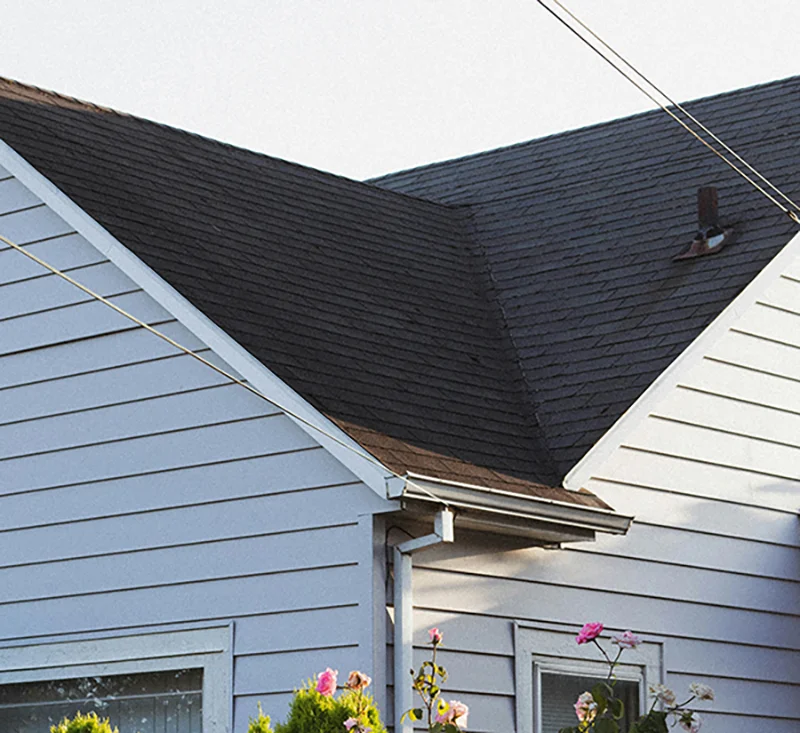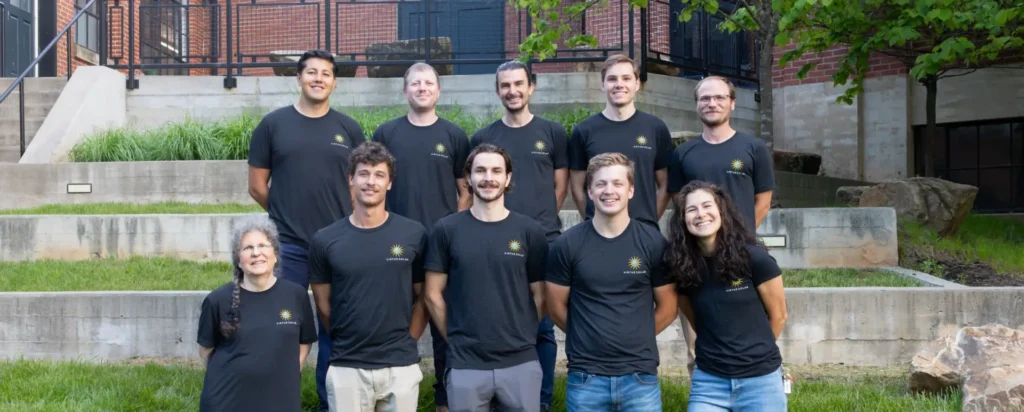Going solar is a significant decision with numerous benefits, including reducing electricity bills and contributing to a cleaner environment. We want to help you ask the right questions to see if solar is right for your home. Here are five essential questions to ask before hiring a solar company.
Is My Roof Good for Solar Panels?
Roof Condition and Orientation
The condition and orientation of your roof are important factors in determining how efficient your solar system will be. Your roof should be in good condition, and shouldn’t need to be replaced for a long time (7+ years). Removing a solar panel system adds additional costs to re-roofing, so if your roof is in need of replacement, take care of that prior to installing solar.

Roofs that face south, southeast, or southwest are ideal for solar. Roofs facing between southeast and southwest are highly productive, losing only a minimal amount of annual energy generation if not perfectly south-facing. If your roof is not facing due south, a lower-angle roof will get more sunlight annually than a steeper roof facing the same direction.
Solar panels can take up a lot of space– Roofs with lots of vent pipes & dormers can be difficult to install around. It is easier usually cheaper & easier to install solar if you have large open areas on your roof.
Shading and Available Sunlight
Shading from trees, buildings, or other obstructions can significantly impact a solar system. There are very sophisticated tools to help estimate how much energy a shady roof will produce, but a roof with no shade during the day will produce significantly more energy than one that is shaded.
What are the Solar Incentives in Virginia?
Long-Term Savings
Installing solar panels can lead to substantial long-term savings on electricity bills. These savings can amount to thousands of dollars every year. The payback period for residential solar installations in Virginia typically ranges from 8 to 12 years. Factors such as electricity rates, system size, and system design can affect how quickly a system pays for itself
Solar Tax Credit
The Federal Investment Tax Credit (ITC) offers homeowners a 30% credit on the cost of solar projects. Projects begun before 2032 are eligible for the full 30% tax credit.
SRECs (Solar Renewable Energy Credits)
SRECs (Solar Renewable Energy Credits) are essentially carbon-credits, which can be sold automatically, generating 20 – 30% additional value from your solar! The Virginia SREC market emerged after the VCEA was passed, and has become a great incentive for homeowners that are installing solar.
How Do I Choose the Right Solar Company and Equipment?
Solar is a long-term investment designed to reliably provide your home with clean energy and savings for 25-years. Choosing the right equipment and solar company is key to ensuring the longevity of your solar system.

High-quality Solar Inverters and Electronics are Essential
Inverters & installation quality are the two biggest contributors to major failures in solar systems. Choosing reliable inverters with a strong warranty is critical to long-term success. We recommend using a high-quality inverter like Enphase or Fronius.
Quality Solar Panels
High-quality equipment may cost more but can offer better performance and reliability. While most solar panels are very durable, higher quality panels can yield more energy and higher savings over time. For solar panels, look for low failure & degradation rates, and at least a 25-year product & performance warranty. It’s also important to make sure the brand is well established, and is likely to be around for the long-haul, should you need to make a warranty claim.
How Will Solar Panels Affect My Home’s Value?
Impact on Property Value
Solar panels are an attractive feature for many homebuyers. Studies show that homes with solar panels sell faster and at higher prices than those without. The growing demand for energy-efficient homes means solar panels can make your property more appealing and valuable.
Resale Value of Solar Homes
Homes with solar panels often attract environmentally conscious buyers willing to pay a premium for energy-efficient features. This trend results in faster sales and higher resale values, making solar panels a wise investment for homeowners looking to increase their property’s marketability.
What Kind of Warranty and Support Should I Expect from a Solar Installer?
Service Warranty
Your solar provider should offer more than just installation; they should be a long-term partner in maintaining and supporting your system. Virtue Solar offers a 25-year service warranty that includes free system maintenance, ensuring top performance and reliability. Many companies will claim to have a 25-year warranty, but will be referencing a manufacturer’s warranty, and won’t provide free service or maintenance.
Ask questions about what happens if an inverter fails, and who will pay for the labor, so you don’t get hit with surprise fees down the road. Make sure you are clear about the process, who your point of contact is, and who will be monitoring the system to see if anything does fail.
Thanks for Reading
We hope that by answering these five questions, you can make an educated decision regarding a solar installation on your home. Thorough research and understanding how long-term quality can secure your investment are essential steps in ensuring a successful solar installation. We wish you luck in your solar journey. If you are interested in going solar in Virginia, our experienced team is here to answer your questions and walk you through every step of the process.

